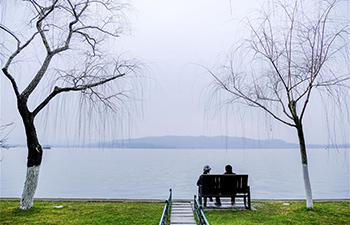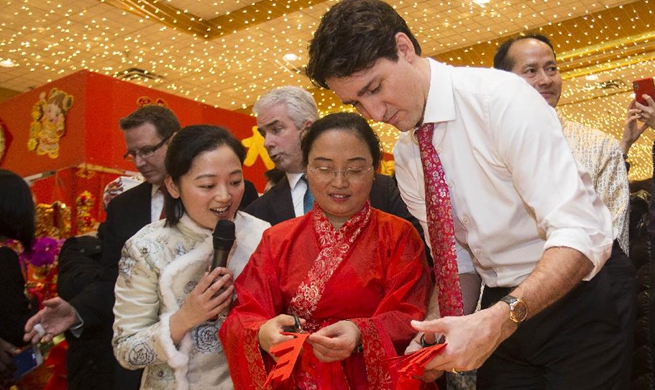MUNICH, Germany, Feb. 16 (Xinhua) -- UN Secretary-General Antonio Guterres on Friday called on building a true and strong multilateralism to address the challenges of present times, against the backdrop that the global security threats and conflicts have become more and more inter-related.
"Multilateralism is today more necessary than ever," the UN chief emphasized, when addressing the 54th the Munich Security Conference (MSC) which kicked off Friday in southern German city of Munich, adding that global problems can only be addressed by global solutions.
Guterres warned that little improvement had been made in the aspect of addressing conflicts, particularly in Middle East, during the last year, reminding that "qualitative change" had taken place in Middle East, which became a "mess" with a number of conflicts inter-connected.
Instead of dealing with conflicts in a fragmented way, Guterres urged a common vision as well as unity of UN Security Council in the situation of Middle East, particularly on Syria issues.
Speaking of denuclearization of the Korean peninsula, the UN chief welcomed improvement of the inter-Korean relations, which has been witnessed in recent weeks.
Meanwhile, he underlined that the essential question remains "denuclearization", which requires all related parties to engage actively. In this regard, Guterres urged the U.S. and DPRK to come together for a meaningful discussion.
It's important not to miss the opportunity of peaceful resolution and diplomatic engagement, as a military solution would be a disaster with catastrophic consequences that people could not even be able to imagine, he added.
In addition, Guterres saw cyber security as an increasing concern for international community, calling for serious discussion about the international legal framework on cyber security.
Over 500 participants from around the world attended the three-day major annual gathering for international security issues, amid uncertain transatlantic relations and challenges to the liberal international order, mainly protectionism and nationalism.

















